The FMCSA’s electronic logging device (ELD) mandate has changed how we track hours of service. Every long-haul trucker knows that ELDs are now part of daily life on the road. Since this regulation is here to stay, having a reliable electronic logging system is crucial for staying compliant and avoiding violations.
Think of your electronic logbook as a professional partner that keeps you compliant and productive. When you have a reliable system, you can focus on your primary responsibility – operating your truck safely and efficiently. Also, when used correctly, an electronic logbook can be more than just another federal requirement you have to follow. Professional drivers who master their electronic logs find ways to make the technology work for them, not against them.
By choosing the best logbook for your business and understanding its features, you can turn this mandatory device into a valuable tool for your daily operations. In this guide, you’ll learn everything you need to know about selecting and using an ELD that matches your needs as a professional driver.
Do you have any questions? Talk to ELD Advisor: 650-405-3372 or Request Callback
Electronic Logbook Essentials: Who Needs Them and Why
Most truck drivers who keep records of duty status (RODS) must use electronic logbooks. This affects most long-haul drivers, but there are some exceptions. You qualify for one of these FMCSA exemptions if:
- You drive a pre-2000 model year vehicle.
- You operate within 150 air-miles of your home base (short-haul exception).
- You’re a drive-away-tow-away operator.
- You use paper RODS for no more than 8 days in any 30-day period.
If you don’t meet these exemptions, you need an elog system – and the penalties for not having one are severe. Getting caught without an ELD means paying fines up to $1,307 per day and sitting for a mandatory 10-hour out-of-service period. These violations hurt your CSA score and your carrier’s safety rating, which can directly impact your income.
The right electronic logging system can do more than just keep you legal. Some benefits are:
- Violation prevention. Get warnings before you run out of driving hours.
- Quick inspections. Show your logs fast during roadside checks.
- Accurate records. Avoid the mistakes that come with paper logs.
- Fuel monitoring. Keep track of fuel use to save money.
- Maintenance tracking. Spot engine problems before they become serious.
Drivers who use quality electronic logs say they make the job easier. Many spend less time at inspections and avoid costly violations. The key is picking a reliable system that works when it matters most – like during DOT inspections.
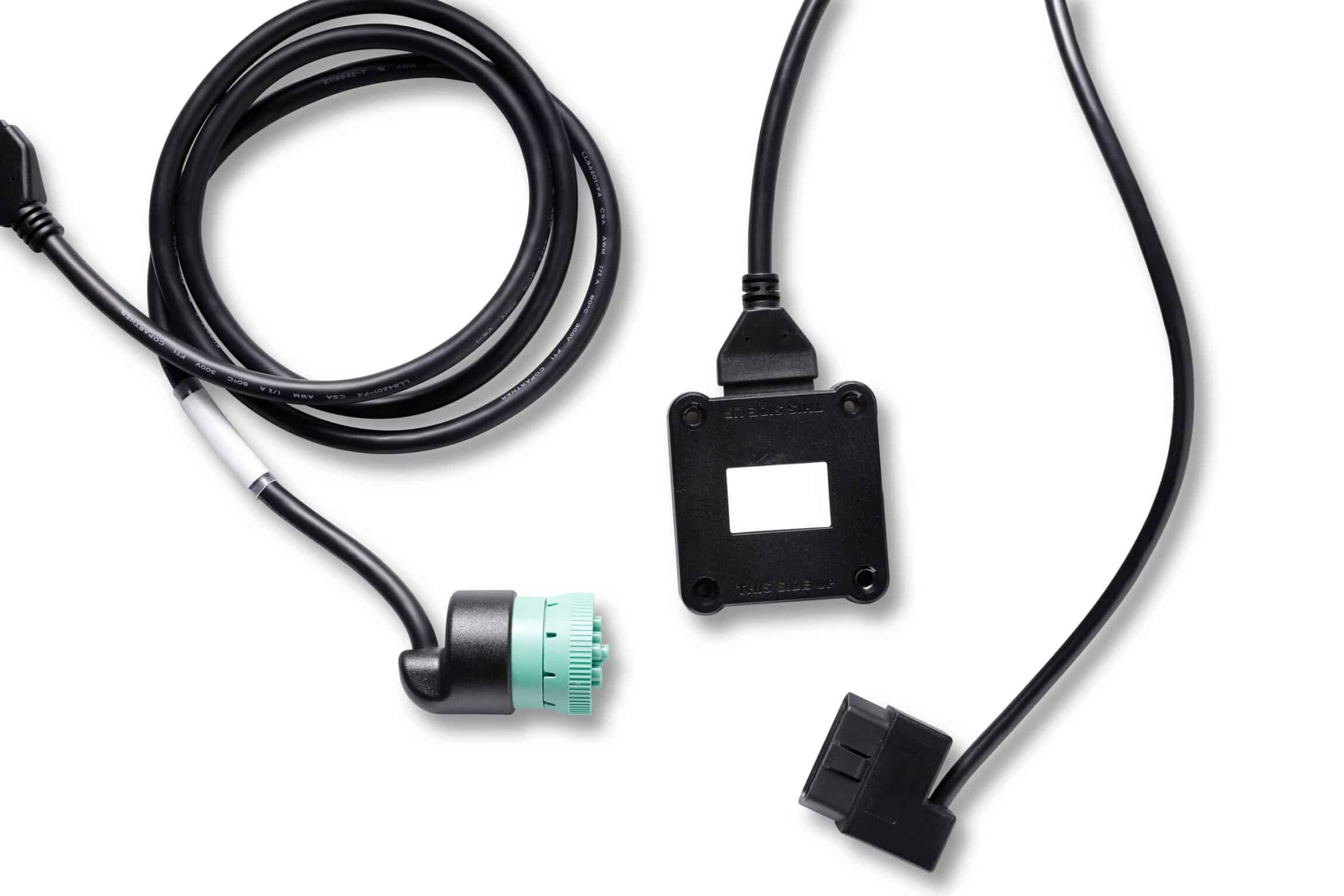
Evolution of Logbook Technology
The change from paper logs to ELDs hasn’t been a small one for the trucking industry. Paper logbooks served drivers well for decades. In 2019, the FMCSA made electronic logs mandatory, marking a big shift in how drivers track their hours.
The first electronic logs, called AOBRDs (Automatic On-Board Recording Devices), came before today’s ELDs. These early devices tracked basic driving time but lacked many features required today. In December 2019, all carriers had to upgrade to ELDs that meet stricter FMCSA standards.
Modern elogs connect directly to your truck’s engine. They automatically record when you’re driving, how far you’ve gone, and where you’ve been. These devices must meet specific FMCSA requirements, including:
- Connect to your truck’s engine.
- Track vehicle movement automatically.
- Record driving time in real-time.
- Transfer data to safety officials.
- Keep logs secure and tamper-proof.
The switch to ELDs has changed daily routines for most drivers. Gone are the days of rounding to the nearest 15 minutes or making manual calculations. Your device now tracks everything automatically, from the moment you start moving until you shut down.
This system makes roadside inspections more straightforward but different. Instead of handing over a paper logbook, you now show your logs on a screen or transfer them electronically. Safety officials can check your HOS compliance instantly, making stops quicker when your logs are in order.
Understanding how these devices work helps you use them effectively. Elogs monitor engine data, vehicle movement, and location to create your logs. While this automation helps prevent common logging mistakes, it also means you need to be more precise about logging your non-driving activities.

Critical Features of the Best Logbooks for Truckers
Every ELD must meet FMCSA standards, but not all devices are created equal. The right logbook does more than just record your hours – it makes compliance easier and helps you avoid violations before they happen.
Before looking at extra features, make sure your device meets basic FMCSA requirements. It must have active registration, track driving time automatically, keep secure records, and allow quick data transfer during inspections. You also need to be able to fix mistakes without erasing the original record.
When comparing ELDs, look for features that make compliance easier and improve your daily operations:
- User-friendly display. A clear screen that’s easy to read in any light saves time during inspections and reduces logging errors.
- Mobile app integration. Reliable apps that work on both Android and iOS devices let you manage logs from your phone on the operating system you find more comfortable.
- Real-time alerts. Notifications before you run out of hours help prevent HOS violations and costly fines.
- GPS location tracking. Accurate location data helps with IFTA reporting and proves delivery times during disputes.
- Engine diagnostics. Early warning of engine problems helps you avoid breakdowns and plan maintenance better.
- Fuel monitoring. Tracking fuel use and idle time helps you save money and improve efficiency.
- IFTA reporting. Automatic state mileage tracking saves hours of paperwork time each quarter.
- Technical support. Access to knowledgeable support staff helps solve problems quickly when they occur to avoid downtime or being put out of service.
- Simple data transfer. Quick electronic transfer of logs to inspectors speeds up roadside checks.
The cheapest option can cost more in the long run. Choose an ELD that’s reliable, easy to use, and backed by good technical support. A quality system pays for itself by preventing violations and saving time during inspections.
HOS247: Quality ELD Solutions for Truckers
Professional drivers need an electronic logbook they can count on every day. HOS247 delivers reliable compliance ELD solutions built around what truckers actually need on the road.
The HOS247 logbook stands out with features that matter to drivers:
- Driver-friendly design. Simple interface means you’ll spend less time learning and more time driving.
- Reliable connectivity. Strong Bluetooth connection maintains accurate logs even in remote areas.
- Top-rated support. Get help in English, Spanish, or Polish from real people who understand trucking. Our team is available Monday to Sunday.
- Automatic IFTA calculations. Save hours on quarterly fuel tax reporting with automatic state mileage tracking.
- Easy updates. Regular system updates happen automatically to keep you compliant with changing regulations.
- Quick installation. Get up and running in minutes with a plug-and-play device that’s simple to install.
- No hidden costs. Transparent pricing with no long-term contracts keeps you in control of your expenses.
- Flexible plans. Choose the features you need without paying for extras you won’t use.
HOS247’s commitment to reliability and service has earned high ratings from drivers and fleet managers alike. Reviews consistently praise the system’s dependability and the quality of customer support. When you’re managing HOS compliance, having a partner you can trust makes all the difference.
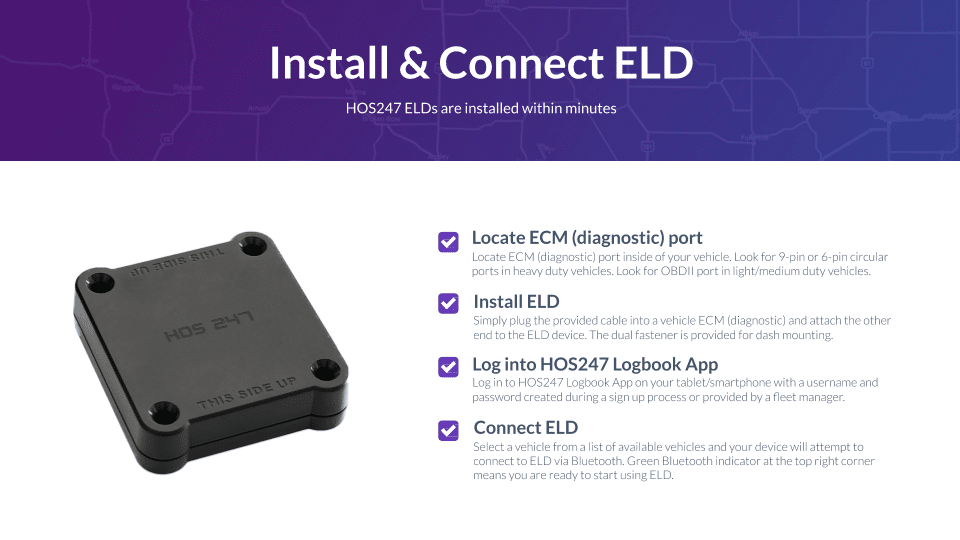
Leading ELD Providers Compared
While every company claims to offer the best trucker logbook app, real driver experiences tell the true story. Here’s how drivers rate the leading ELD providers, based on thousands of reviews from professional truckers like you:
| RANK | ELD PROVIDER | iOS APPSTORE | ANDROID PLAYSTORE |
|---|---|---|---|
| 1 | |||
| 2 | Motive | ||
| 3 | JJ Keller | ||
| 4 | BigRoad | ||
| 5 | Garmin | ||
| 6 | Rand McNally | ||
| 7 | |||
| 8 | Geotab | ||
| 9 | |||
| 10 | Transflo |
When looking for the best logbook app for truck drivers, take time to read recent reviews, especially from drivers with similar operations to yours. Look for patterns in complaints – they often reveal the true weak points of a system. Ask other drivers about their experiences when you’re at truck stops or waiting to load. In the next section, we will go over other factors to take into account.
Choosing Your Ideal ELD
Picking the right ELD is a crucial business decision. Whether you’re choosing your first system or thinking about switching providers, you need to evaluate your options carefully before making a commitment.
Experienced drivers recommend focusing on these key factors:
- Contract terms. Consider the commitment length that works best for your operation. Some providers offer month-to-month flexibility while others require annual contracts.
- Hardware investment. Compare device purchase versus leasing options, and watch out for “free” hardware that comes with hidden costs.
- Service fees. Review monthly subscription costs and ensure you understand which features are included at each price level.
- Ease of use. Master your daily tasks with simple controls and clear displays that make inspections smooth and efficient.
- Connection reliability. Look for systems with strong, stable Bluetooth connections that maintain performance even in remote areas.
- Live support. Choose a provider offering readily available help from knowledgeable staff who understand trucking operations.
- Quick installation. Ensure the system offers straightforward setup that doesn’t require technical expertise or professional installation.
- Regular updates. Select a provider that automatically keeps your system current with the latest regulation changes and feature improvements.
- Training resources. Check that comprehensive training materials and reference guides are available when you need them.
Before committing to a provider, test their service quality. Call their support line during off-hours to check response times. Ask about their backup support if their main system has issues. See how clearly they explain their features and pricing.
Before signing any contract, insist on a live demo of the system. Pay attention to how easy it is to handle common tasks like updating duty status and transferring logs during an inspection. If the sales rep can’t clearly explain how something works, imagine trying to figure it out alone at midnight in a truck stop.
A quality provider knows you’re making an important business choice. They’ll answer your questions clearly and give you time to evaluate their system properly.
Common ELD Challenges and Solutions
Even the best logbooks can have issues. Knowing how to handle common problems keeps you compliant and moving. Here are the challenges drivers face most often and how to solve them.
Connection Problems
When your ELD loses connection, stay calm. First, check your Bluetooth settings and make sure your mobile device hasn’t disconnected. If that doesn’t work, try unplugging the device and plugging it back in after 30 seconds. Most connection issues clear up with these simple steps.
Data Transfer Issues
Having trouble sending logs to inspectors? Keep a backup transfer method ready. If electronic transfer fails, most ELDs can display logs on the screen or create a PDF file. Know how to use both methods before you need them during an inspection.
Malfunction Procedures
If your electronic logbook malfunctions, you have 8 days to get it fixed while using paper logs. Write down when the problem started and keep clear records of your driving time. Contact your ELD provider’s support team immediately – good providers will help solve the issue quickly.
Login Troubles
Can’t log in to your account? First, check your internet connection. Then verify you’re using the correct username and password. If you’re still locked out, contact your provider’s support line. They can usually reset your access quickly.
Missing Log Data
Sometimes logs show gaps or missing information. Report these issues to your carrier and ELD provider right away. Keep detailed notes of your actual driving time until the problem is fixed. Missing data can lead to violations if not handled properly.
The best way to handle elog problems is to prevent them. Keep your device updated, learn the basic troubleshooting steps, and save your support team’s phone number where you can easily find it.
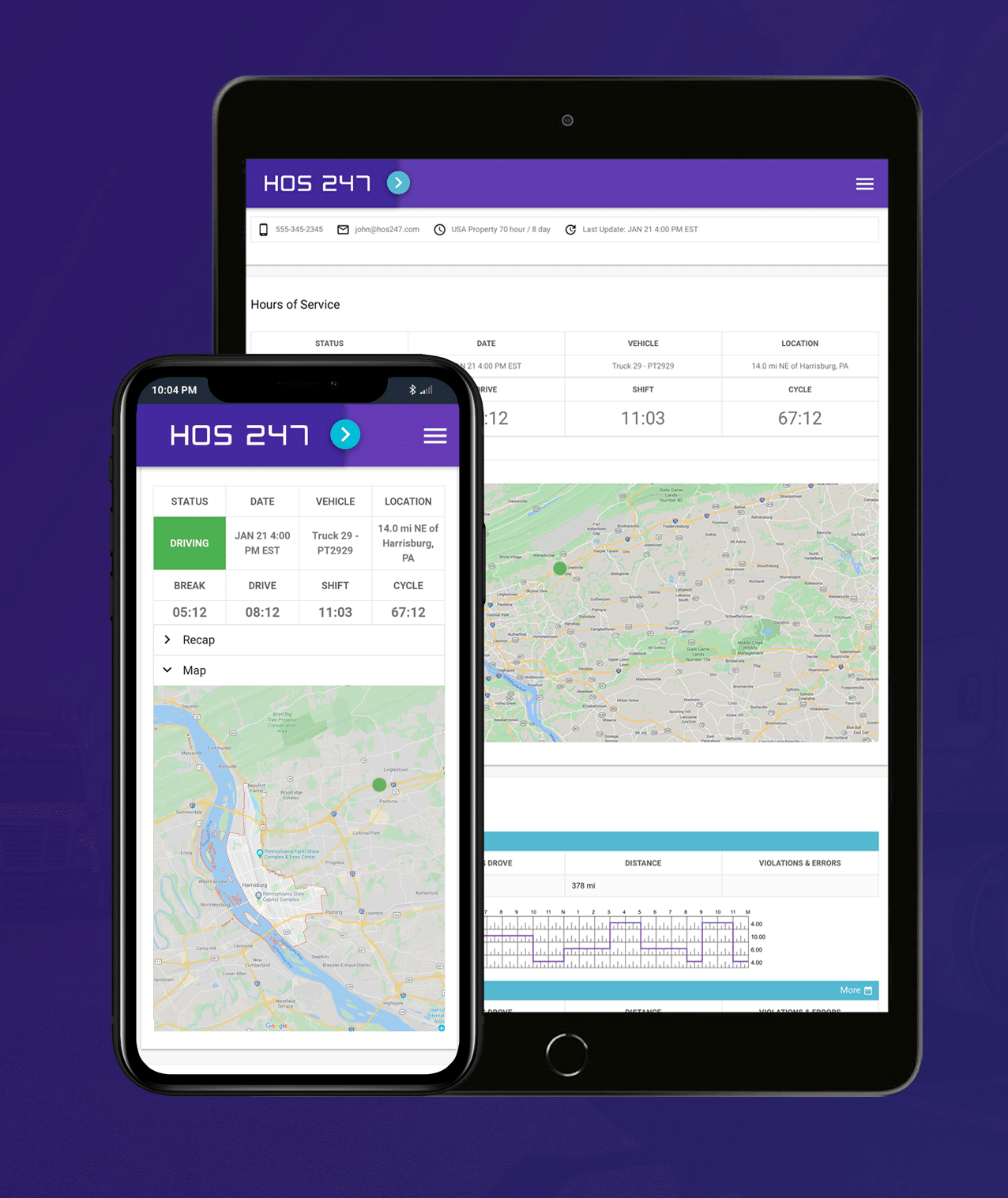
Future-Proofing Your ELD Investment
Your logbook isn’t just a tool for today – it’s an investment in your future on the road. Understanding where ELD technology is heading helps you make smarter choices about your electronic logging system.
The FMCSA continues to update its requirements as technology advances. Quality providers stay ahead of these changes with regular software updates. The best systems download and install these updates automatically, keeping you compliant without extra effort on your part.
New features are changing how ELDs support drivers:
- AI-powered insights. Smart systems that help prevent HOS violations before they happen.
- Automated maintenance alerts. Early warning of potential mechanical issues.
- Enhanced navigation. Truck-specific routing that accounts for height and weight restrictions.
- Improved communication. Better integration with dispatch and loading facilities.
- Streamlined documentation. Digital storage of all your important paperwork.
Looking ahead, ELDs will likely connect with other trucking technologies. The ability to integrate with different systems matters more each year. Modern logbooks should work smoothly with:
- Transportation management systems (TMS).
- Electronic DVIRs.
- Fuel management programs.
- Maintenance tracking software.
- Load finding platforms.
Consider your future needs when choosing a system today. Ask providers about their development plans and how often they add new features. A good provider will have a clear roadmap for improving their system based on driver feedback and industry changes.
The goal is finding an electronic logging system that grows with your business. Choose a provider that demonstrates commitment to keeping their technology current and responsive to drivers’ needs.
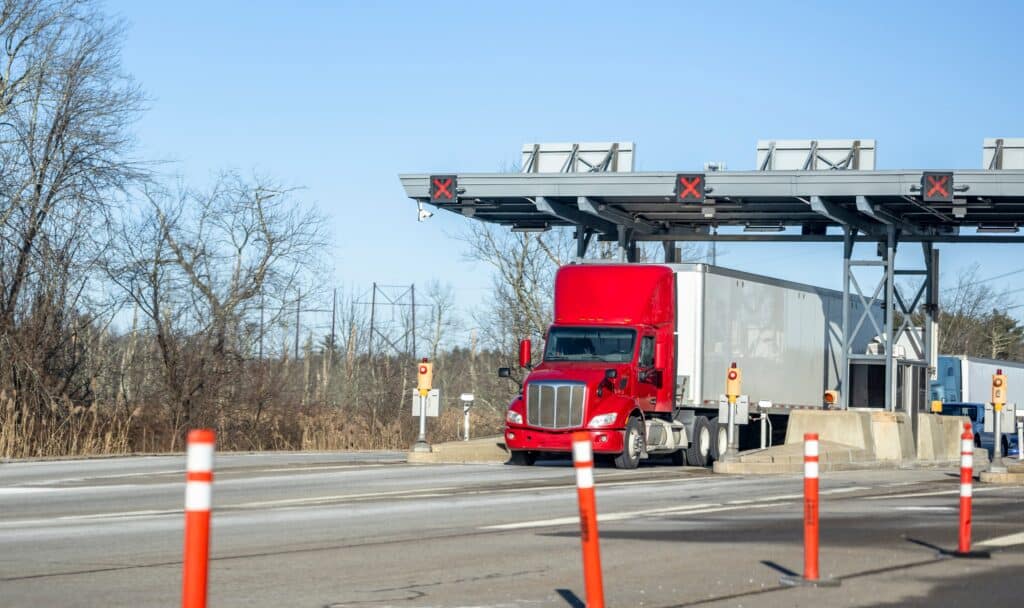
Conclusion
Your ELD is more than just a compliance requirement – it’s a tool that should make your job easier, not harder. By choosing the right system and understanding how to use it effectively, you can turn this mandatory device into an asset for your daily operations.
A reliable electronic logbook with strong customer support saves you time and prevents compliance headaches. Learning your system’s features thoroughly helps you handle inspections smoothly and manage your hours efficiently. Many drivers find that mastering their electronic logs means less paperwork and more driving time.
Don’t settle for a system that just meets minimum requirements. A quality ELD backed by good support is worth the investment. After all, this is technology you’ll use every day – make sure it works as hard as you do.
Review your current electronic logging system. If you’re not getting the reliability and support you need, it might be time to explore better options. Remember, every minute spent fighting with a poor ELD system is money lost on the road.

I’ve co-founded, built and managed several transportation-related businesses. Now, I’m a founder and CEO of HOS247 – an AI Transportation Platform for trucking companies, freight brokers and other logistics operations. We are transitioning old-style operations to technology-advanced logistics entities and help them to grow their businesses. ELDs (electronic logging devices), fleet tracking and management 2.0 combined with AI-powered dispatch tools.











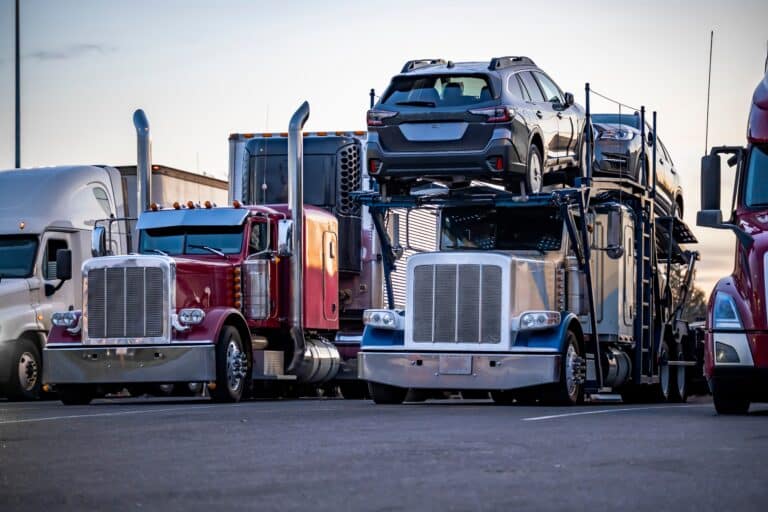
Drivers are subject to inspection by the FMCSA at any time. It is best to stay on the safe side, and that includes having a dependable truck driver log. To do that, drivers looking for an ELD should spend some

Most commercial motor carriers and drivers need to comply with the Electronic Logging Device mandate, but there are some exceptions. This article discusses who is required to comply and why they should make the switch to better electronic logging devices
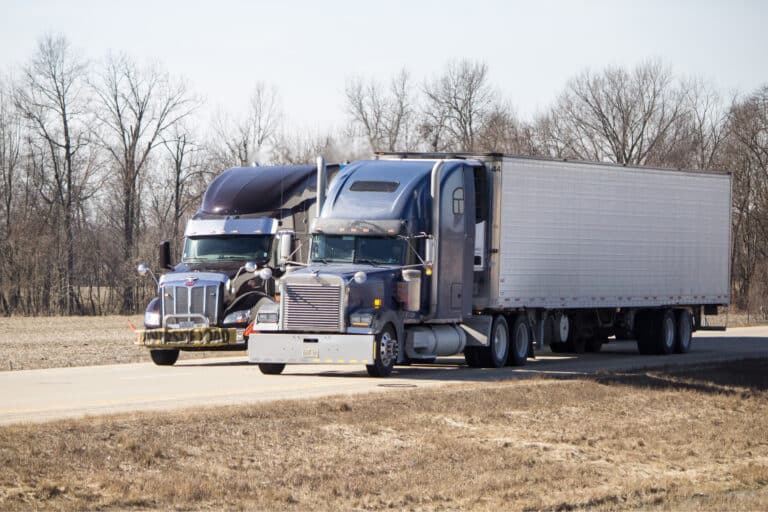
Running a business is challenging, no matter the size. Just like giant companies with hundreds of vehicles in operation, owners of small fleets face similar problems related to inefficient dispatch, lack of visibility, extra fuel expenses, and time-consuming paperwork. Small